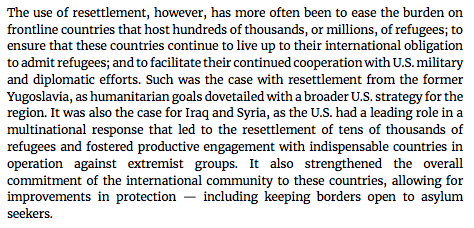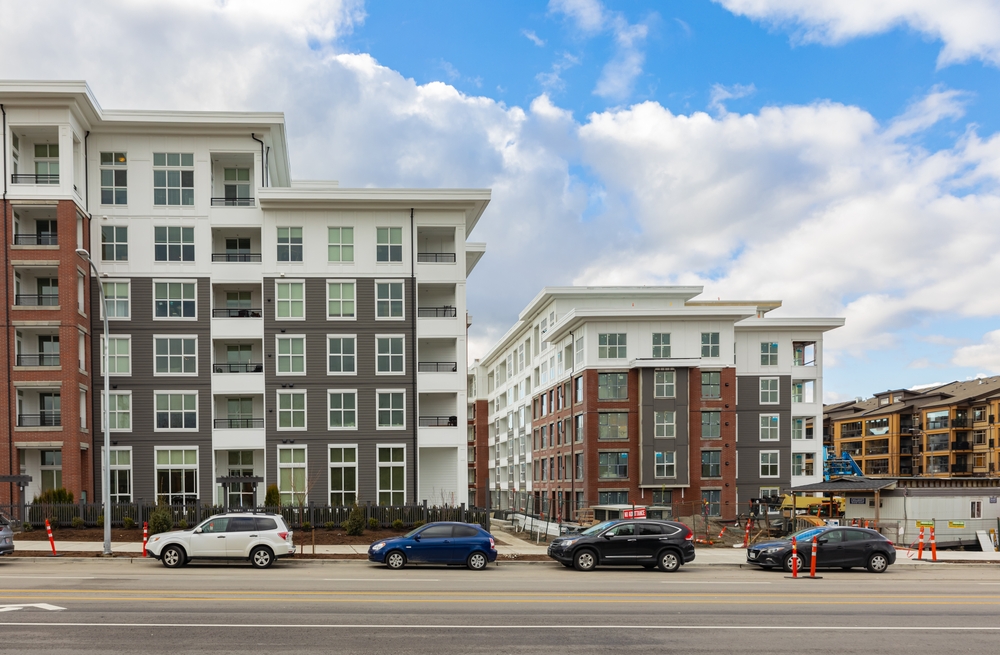THREAD: For the first time since the passage of the 1980 Refugee Act, the U.S. is no longer the world’s leader in refugee resettlement.
A NEW PAPER by @IdeanSalehyan and Larry Yungk lays out 5 measures we must take if we are to save this program. 1/ niskanencenter.org/restoring-the-…
A NEW PAPER by @IdeanSalehyan and Larry Yungk lays out 5 measures we must take if we are to save this program. 1/ niskanencenter.org/restoring-the-…
Historically, there has been broad, bipartisan support for the U.S. Refugee Admissions Program (USRAP).
The Trump administration has politicized the idea of refugee assistance and has slashed refugee admissions across the board. 2/ niskanencenter.org/how-trump-poli…
The Trump administration has politicized the idea of refugee assistance and has slashed refugee admissions across the board. 2/ niskanencenter.org/how-trump-poli…
In 2017, the number of refugees admitted to the U.S. was less than half of the 100,000 proposed by President Obama. The Trump administration has repeatedly slashed the ceiling on refugee admissions — with fiscal year 2020’s proposal standing at 18,000. 3/ 

Not only have numbers been cut, but the composition of admitted refugees has also changed, “reflecting the Trump administration’s continued animus toward certain groups—particularly Muslims and people from Latin America,” writes @MLaCorte_ . 

.@CollinsWilmot could not have said it better: “Today, with nearly 80 million forcibly displaced people and 26 million refugees, the American retreat on welcoming refugees moves our country—and the world—in the wrong direction." 5/
(@CollinsWilmot was himself a refugee from the Liberian Civil War. He was resettled in Montana, and now serves as the Mayor of Helena, MT. He's an example of how the refugees can make the U.S. greater. See his story on @TheDailyShow w/ @Trevornoah) 6/
Slashing refugee admissions now permanently hollows out infrastructure to resettle refugees in the future, as @priscialva has pointed out. 7/ cnn.com/2019/09/20/pol…
If the refugee resettlement program is to survive a hostile administration, there are five core changes that we need to make. 8/
1. Enhance Community Involvement:
Federal officials/states should develop systems to better match resettled refugees (with available employment opportunities, affordable housing, etc.) and create a community sponsorship program. 9/ niskanencenter.org/the-case-for-e…
Federal officials/states should develop systems to better match resettled refugees (with available employment opportunities, affordable housing, etc.) and create a community sponsorship program. 9/ niskanencenter.org/the-case-for-e…
As Muzaffar Chishti and @SarahPierceEsq of @MigrationPolicy have pointed out, local communities have indicated a desire to welcome refugees, as there are tangible economic and cultural benefits to doing so. 10/ migrationpolicy.org/article/despit…
2. Strategic Resettlement:
By adopting a minimum number of refugees to adopt annually and making certain individuals merit special consideration, such efforts would protect vital US partners + send a signal to others in the future who may consider assisting the U.S. govt. 11/
By adopting a minimum number of refugees to adopt annually and making certain individuals merit special consideration, such efforts would protect vital US partners + send a signal to others in the future who may consider assisting the U.S. govt. 11/

3. In-Country Refugee Determinations and Processing:
Re-establishing in-country processing would prevent individuals from taking risky, long-distance journeys as well as provide the U.S. with a means to engage with countries during diplomatic or political tensions. 12/
Re-establishing in-country processing would prevent individuals from taking risky, long-distance journeys as well as provide the U.S. with a means to engage with countries during diplomatic or political tensions. 12/

4. Strengthened Congressional Oversight
The 1980 Refugee Act calls for the president to make annual determinations for refugee numbers before each fiscal year. This process must be strengthened and held to the legal timeline outlined by the Act. 13/ niskanencenter.org/congress-must-…
The 1980 Refugee Act calls for the president to make annual determinations for refugee numbers before each fiscal year. This process must be strengthened and held to the legal timeline outlined by the Act. 13/ niskanencenter.org/congress-must-…
5. Bolstered Global Cooperation:
When the U.S. expresses willingness to resettle a significant # of refugees, it signals to other nations to do their part as well. The US should resume working closely with UNHCR for identification of candidates and to receive referrals. 14/
When the U.S. expresses willingness to resettle a significant # of refugees, it signals to other nations to do their part as well. The US should resume working closely with UNHCR for identification of candidates and to receive referrals. 14/

To restore the United State’s position as a leader in refugee resettlement, we must create a renewed program of the 1980 Refugee Act which includes safeguards against future attempts to undermine it. We specifically call for:
15/
15/

Refugee resettlement is crucial to our foreign policy, economic development, and humanitarian goals.
It's also part of who we are as Americans.
Our full report and recommendations can be found here. 16/16 niskanencenter.org/restoring-the-…
It's also part of who we are as Americans.
Our full report and recommendations can be found here. 16/16 niskanencenter.org/restoring-the-…
• • •
Missing some Tweet in this thread? You can try to
force a refresh












